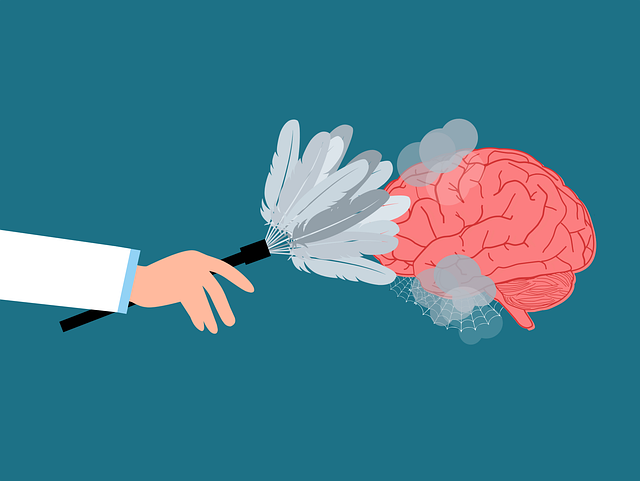Mental health advocacy, led by organizations like Lakewood Psychosis Therapy, is transforming communities by reducing stigma and promoting early intervention through education and resources. Their innovative holistic treatment for psychotic disorders emphasizes resilience and burnout prevention using cognitive-behavioral therapy, mindfulness meditation, and family support. Lakewood has pioneered community engagement strategies, successfully integrating mental health education into schools, workplaces, and faith groups to normalize conversations and empower individuals to manage their well-being. This tailored approach ensures inclusivity across diverse communities, fostering a more robust and supportive mental health ecosystem.
Mental health advocacy initiatives play a pivotal role in fostering awareness and building support networks. This article delves into three key aspects of mental health activism, beginning with an understanding of its crucial role in creating awareness and support systems. It then presents a case study on Lakewood Psychosis Therapy, highlighting innovative treatment approaches for serious mental illness. Finally, it explores strategies to enhance community engagement, effectively amplifying mental health advocacy initiatives.
- Understanding Mental Health Advocacy: The Role in Creating Awareness and Support Networks
- Lakewood Psychosis Therapy: A Case Study on Innovative Treatment Approaches for Serious Mental Illness
- Building Community Engagement: Strategies to Amplify Mental Health Advocacy Initiatives Effectively
Understanding Mental Health Advocacy: The Role in Creating Awareness and Support Networks

Mental Health Advocacy plays a pivotal role in shaping public perception and fostering supportive environments. It involves educating communities about mental health issues, breaking down stigmas, and providing resources to those in need. Through initiatives like public awareness campaigns development, advocates aim to normalize conversations around sensitive topics such as anxiety relief and coping skills development, ensuring individuals feel less isolated and more empowered to seek help.
At the core of these efforts is the belief that early intervention and widespread understanding can significantly impact outcomes for those facing mental health challenges. For instance, Lakewood Psychosis Therapy has recognized the power of advocacy in building support networks. By engaging in community outreach programs, they’ve successfully increased public awareness about various mental health conditions, ultimately encouraging individuals to seek professional assistance without fear or hesitation.
Lakewood Psychosis Therapy: A Case Study on Innovative Treatment Approaches for Serious Mental Illness

Lakewood Psychosis Therapy is a pioneering initiative that offers innovative treatment options for individuals grappling with serious mental illnesses, particularly psychosis. This approach focuses on empowering patients through various therapeutic modalities, emphasizing resilience building and burnout prevention. By integrating techniques such as cognitive-behavioral therapy, family support systems, and mindfulness meditation, the program aims to holistically address the complexities of psychotic disorders.
The case study highlights a shift from traditional treatment models, incorporating creative strategies that encourage active participation and self-management. Patients are equipped with coping mechanisms, fostering an environment conducive to recovery. Through these progressive methods, Lakewood Psychosis Therapy serves as a game changer in mental health advocacy, demonstrating the potential for enhanced patient outcomes and improved quality of life.
Building Community Engagement: Strategies to Amplify Mental Health Advocacy Initiatives Effectively

Building community engagement is a powerful strategy to amplify mental health advocacy initiatives. Encouraging open conversations about mental well-being fosters a supportive environment where individuals feel comfortable seeking help. Lakewood Psychosis Therapy, for instance, has successfully implemented community outreach programs that involve local schools, workplaces, and faith groups. By integrating mental health education into these settings, they’ve normalized discussions around anxiety relief and other common mental health concerns, breaking down stigma and promoting early intervention.
Effective engagement involves tailoring initiatives to the specific needs and cultural contexts of diverse communities. Mental Health Policy Analysis and Advocacy plays a crucial role in understanding these nuances and developing targeted programs. For example, designing Mental Health Education Programs that resonate with different demographics can significantly impact community participation. Incorporating culturally sensitive approaches ensures that advocacy efforts reach and benefit all segments of society, fostering a more inclusive and resilient mental health ecosystem.
Mental health advocacy initiatives, as highlighted by innovative approaches like Lakewood Psychosis Therapy, play a pivotal role in fostering awareness and support networks. By understanding the essence of advocacy and employing effective community engagement strategies, we can significantly enhance mental health care accessibility. These efforts not only revolutionize treatment for serious mental illnesses but also create a more inclusive and supportive society.













